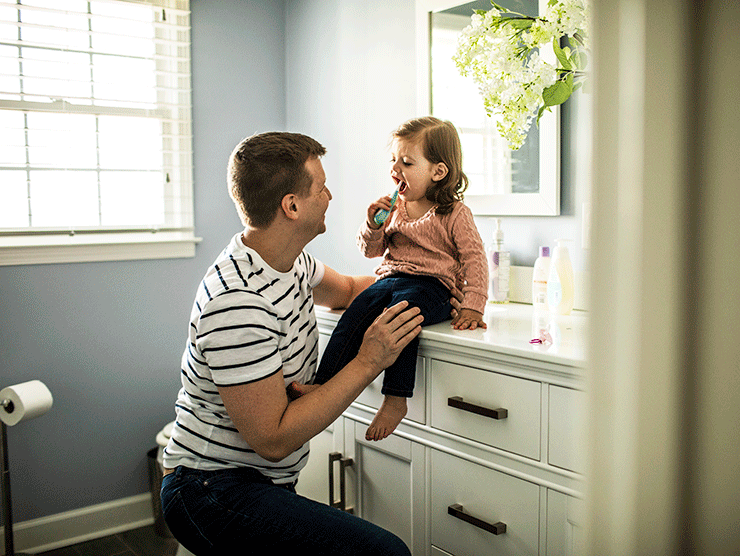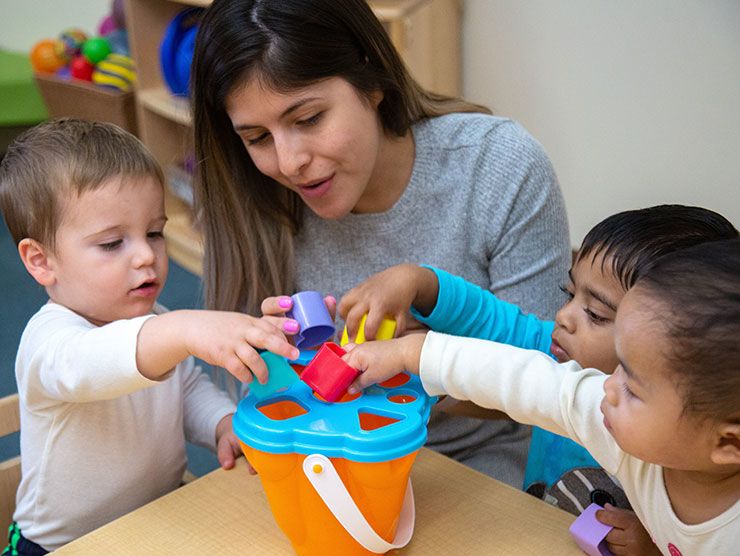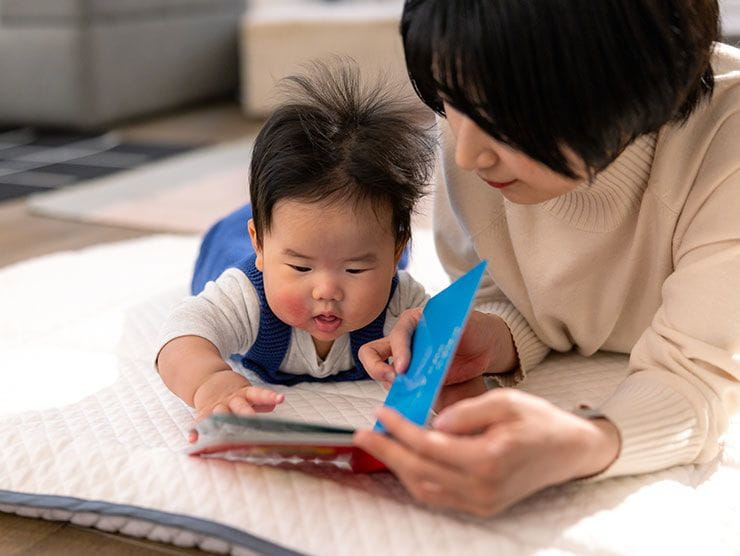It's been almost a year since my daughter Mia started daycare. I can’t think about it for too long because that means her transition to toddler care is right around the corner. (Pass the tissues!) Honestly, I’m going to need a transition plan for myself, too.
Approaching your baby’s first day of daycare or just starting comes with lots of emotions. I remember having all the feelings, too: nervous about handing over my baby, wondering how I’d blend mom “me” with work “me,” and curious about what life would look like on the other side of maternity leave.
It turns out that having great child care helps a ton. I never worried if Mia was in good hands; I knew she was. Turns out, I needed more support than she did – her teachers were amazing in helping me get up to speed logistically, but emotionally, I wish someone were there to guide me along.
Here are some of the things that helped me in those first days and months in daycare:
Tips for starting daycare with your baby
Find your lanes at home – and do what you can the night before
When we first started daycare, my husband and I would trip over each other trying to get everyone ready. A couple of months in, we decided things would run much more smoothly if we divided and conquered. In our house, he started as the bottle guy and is now the lunch guy for Mia, and I’m the clean clothes and morning bath person (yes, mornings, we fit baths in when it works for us!). Your set-up might look totally different, maybe you’re a one-person show or you’ve got a grandparent in the mix – but the point is to divide (or at least organize) the load in a way that makes mornings less chaotic. And anything you can do the night before (bottles, bags, outfits) is a gift to your future self.
Protect the last half hour of your day
I try my hardest not to have meetings from 4:30-5 pm if I can help it. It’s not a perfect system, but it gives me time to wrap up loose ends before I close my laptop. That way, I won’t be sprinting from a call straight to my car, racing the clock to daycare pick-up. The mental transition matters just as much as the physical one.
Lean on your child’s teachers and the center staff
The teachers and staff at Mia’s center have truly seen it all. Her lead teacher has been caring for children for 18 years (!), that’s basically a PhD in early childhood education. I’ve asked Mia’s teachers everything from serious questions to ones I’ve thought sound silly. They’ve even seen me cry after a long day. And every single time, they’ve responded with kindness. They’re here to support your baby and you – take them up on it.
Don’t forget you
It’s easy to pour all your energy into your baby and forget yourself in those first few weeks. Even the smallest acts of self-care have made a difference. For me, it was stopping to get a coffee on the way into work, treating myself to lunch, or taking a walk during the day. Tiny pauses like these help me feel more like myself.
Appreciate the tiny freedoms
One of my oldest friends once told me, “Going back to work means I get to use the bathroom and eat lunch whenever I want!” I laughed then, but she was right. The transition back to work is hard, no matter how you slice it, but remembering the smallest wins makes it a little easier.
Celebrate the best part of your day
That moment when I close my laptop and head out to daycare never gets old. I try not to speed, but it feels like I can’t get there fast enough. Walking through the door, spotting Mia in her classroom, and seeing her face light up when she sees me is priceless.
I still don’t have it all figured out, and maybe I never will. But I learned that those first few days and months in daycare aren’t just a transition for your baby, they’re a transition for you, too. And that’s ok. With the right support, a few tricks up your sleeve, and a little grace for yourself, you’ll both find your rhythm.





